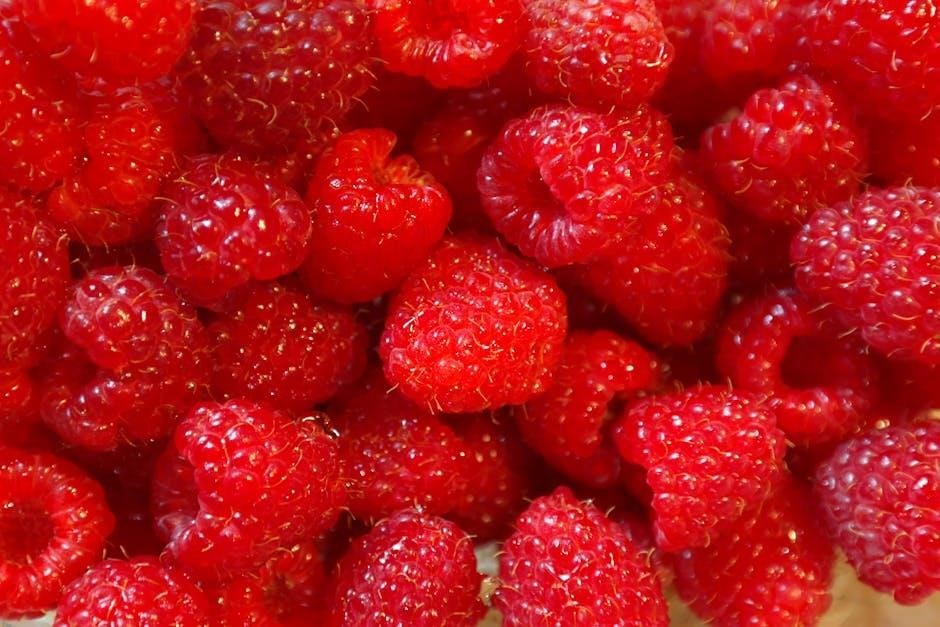The Primal Diet focuses on natural, minimally processed foods, emphasizing whole ingredients like meats, vegetables, and healthy fats. It avoids processed foods, grains, and refined oils, promoting a flexible approach to nutrition based on ancestral eating patterns.
1.1 Overview of the Primal Diet Philosophy
The Primal Diet philosophy centers on eating natural, minimally processed foods, mirroring the diet of early humans. It emphasizes whole foods like meats, vegetables, and healthy fats, while eliminating modern processed items. This approach aims to align eating habits with ancestral patterns, promoting overall health and well-being through a return to simpler, more natural nutrition.
1.2 Key Principles of the Primal Diet
The Primal Diet centers on avoiding processed foods, grains, and refined oils, emphasizing natural, whole foods. It promotes flexibility in macronutrient intake, guided by the Carbohydrate Curve, which adjusts carb consumption based on activity levels. The diet encourages high-fat and low-to-moderate-carb eating, with a focus on ancestral eating patterns to foster optimal health and well-being through nutrient-dense, unprocessed food choices.
Allowed Foods on the Primal Diet
The Primal Diet permits whole, natural foods, including meats, fish, vegetables, fruits, nuts, seeds, and healthy fats like avocado and olive oils. Processed foods are excluded.
2.1 Meats and Poultry
The Primal Diet encourages consuming a variety of meats and poultry, such as beef, pork, chicken, turkey, lamb, and eggs. These should be grass-fed, pasture-raised, and free from additives. Organ meats are also recommended for their nutrient density. The diet emphasizes avoiding processed meats and focusing on whole, unprocessed cuts. Fats naturally present in these foods are embraced, aligning with the diet’s philosophy of natural eating.
2.2 Fish and Seafood
Fish and seafood are integral to the Primal Diet, offering essential nutrients and omega-3 fatty acids. Options include salmon, cod, tuna, shrimp, and shellfish. Wild-caught varieties are preferred over farmed to avoid additives and ensure higher quality. These foods support heart health and provide lean protein sources, fitting seamlessly into the diet’s focus on whole, unprocessed ingredients for optimal nutrition and well-being.
2.3 Vegetables and Fruits
Vegetables and fruits are cornerstone components of the Primal Diet, emphasizing whole, unprocessed options. Choices include leafy greens like arugula and spinach, cruciferous vegetables such as broccoli, and colorful options like bell peppers. Fruits like berries, apples, and bananas are also encouraged, providing natural sweetness and essential vitamins. These foods are rich in antioxidants and fiber, supporting overall health and energy levels while aligning with the diet’s focus on natural nutrition.
2.4 Nuts, Seeds, and Healthy Fats
Nuts and seeds are integral to the Primal Diet, offering healthy fats and essential nutrients. Choices include almonds, walnuts, chia seeds, and flaxseeds. Healthy fats like avocado oil, olive oil, and coconut oil are also emphasized, providing sustained energy and supporting overall health. These foods enhance the diet’s flexibility, allowing for varied macronutrient intake while maintaining a focus on natural, unprocessed sources of nutrition.
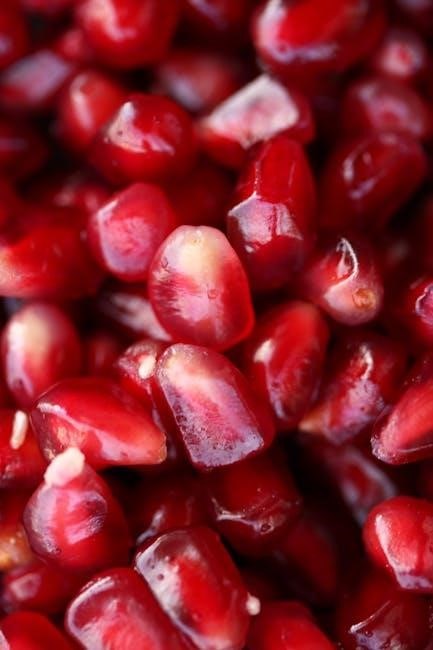
Differences from Other Diets
The Primal Diet stands out by allowing natural fats and flexibility in macronutrient intake, unlike strict low-carb diets. It emphasizes whole foods and holistic lifestyle changes beyond just diet.
3.1 Primal vs. Paleo Diet
The Primal Diet differs from the Paleo Diet by allowing raw dairy and emphasizing fat intake. While Paleo focuses strictly on pre-agricultural foods, Primal includes modern natural fats like avocado oil. Both diets avoid processed foods, grains, and refined oils, but Primal offers more flexibility, making it adaptable to various lifestyles and dietary preferences, unlike Paleo’s stricter approach.
3.2 Primal vs. Keto Diet
The Primal Diet shares similarities with Keto in emphasizing high-fat intake but offers more flexibility. Unlike Keto, which strictly limits carbs, Primal uses the Carbohydrate Curve, allowing up to 150 grams for active individuals. Primal also focuses on whole, natural foods, while Keto often permits processed foods as long as they are low-carb, making Primal more holistic in its approach to nutrition and lifestyle.
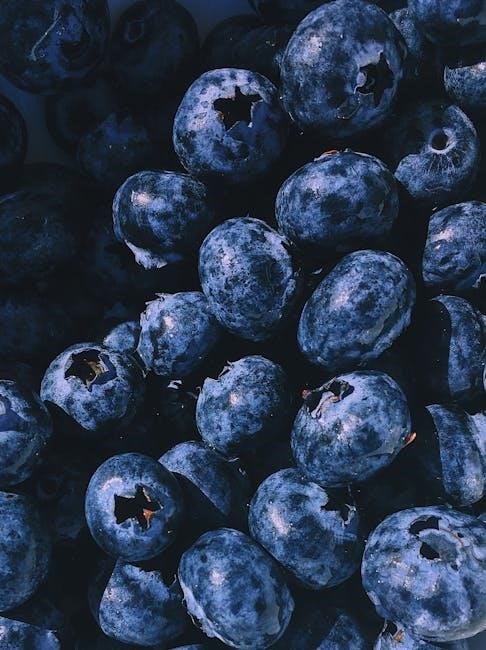
Macronutrient Balance in the Primal Diet
The Primal Diet balances macronutrients by focusing on high-fat intake, moderate protein, and low-to-moderate carbs, tailored with the Carbohydrate Curve to match individual activity levels and goals.
4.1 Carbohydrate Intake and the Carbohydrate Curve
The Primal Diet uses the Carbohydrate Curve to guide carb intake, ranging from 50g/day for sedentary individuals to 150g/day for active people. This tool helps tailor carbohydrate consumption to energy needs, ensuring stable blood sugar levels and optimal metabolic function. The diet emphasizes whole, nutrient-dense sources of carbs, such as fruits and vegetables, while avoiding refined or processed options.
4.2 Protein and Fat Consumption
The Primal Diet encourages high-quality protein from meats, fish, and eggs, essential for muscle repair and growth. Healthy fats, such as those from avocados and olive oil, are also emphasized, supporting hormone production and satiety. The diet allows flexibility in fat and protein intake, accommodating individual needs and activity levels while promoting balanced macronutrient consumption.
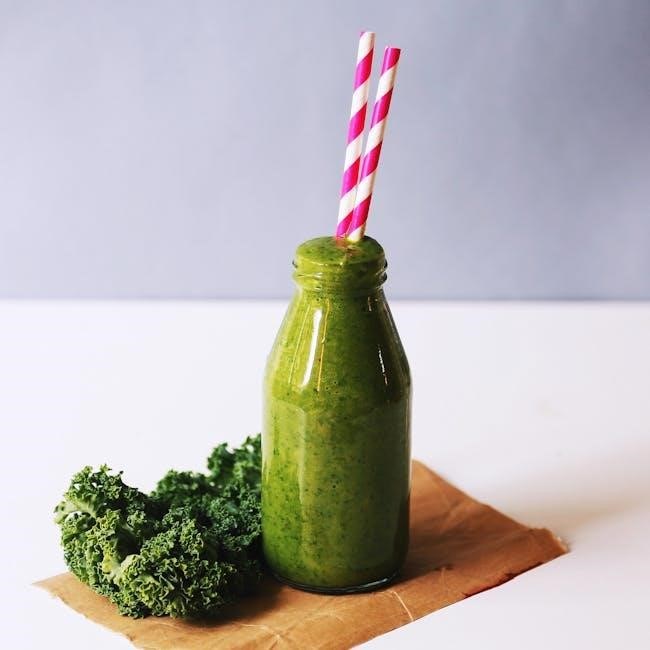
Health Benefits of the Primal Diet
The Primal Diet promotes improved digestion, reduced inflammation, and increased energy levels due to its focus on nutrient-dense, whole foods. It supports overall health and well-being.
5.1 Weight Loss and Improved Body Composition
The Primal Diet aids in weight loss by focusing on high-protein, high-fat, and low-carb foods, reducing hunger and increasing satiety. This macronutrient balance supports fat burning and lean muscle retention, leading to improved body composition. By eliminating processed foods and emphasizing whole, nutrient-dense ingredients, the diet helps maintain a healthy weight and enhances overall physique naturally.
5.2 Enhanced Blood Sugar Control
The Primal Diet helps stabilize blood sugar levels by eliminating processed carbs and sugars. Its focus on whole, nutrient-dense foods like vegetables, meats, and healthy fats reduces glycemic spikes. By following the Carbohydrate Curve, individuals can tailor their carb intake to activity levels, enhancing insulin sensitivity and promoting better metabolic health, which is particularly beneficial for those managing blood sugar-related conditions.

Flexible Eating Plans Within the Primal Diet
The Primal Diet offers adaptable eating plans, including Low-Carb, Keto-Primal, and Carnivore-Primal options, catering to diverse lifestyles and dietary goals while maintaining its core philosophy of whole, natural foods.
6.1 Low-Carb Primal Diet
The Low-Carb Primal Diet restricts carb intake, starting at 50 grams daily for sedentary individuals and up to 150 grams for active people. It focuses on meats, fish, vegetables, nuts, and healthy fats, eliminating grains and sugars. This plan aligns with the Carbohydrate Curve, guiding users based on activity levels to optimize weight loss and metabolic health.
6;2 Keto-Primal Diet
The Keto-Primal Diet combines the Primal Diet’s focus on whole, natural foods with the ketogenic diet’s high-fat, low-carbohydrate approach. It emphasizes meat, fish, eggs, and healthy fats while restricting carbs to induce ketosis. This hybrid approach aims to promote fat burning, improve blood sugar control, and enhance overall metabolic health, offering a structured yet flexible eating plan for those seeking rapid weight loss and improved energy levels.
6.3 Carnivore-Primal Diet
The Carnivore-Primal Diet is an extreme version that focuses solely on animal products, eliminating all plant-based foods. It includes meats, fish, eggs, and raw dairy, aiming for maximum protein intake and minimal carbs. This diet is designed for those seeking a strict, simplified approach to nutrition, emphasizing the belief that humans thrive on animal-derived foods, though it’s considered highly restrictive and may not suit everyone’s dietary needs or preferences.
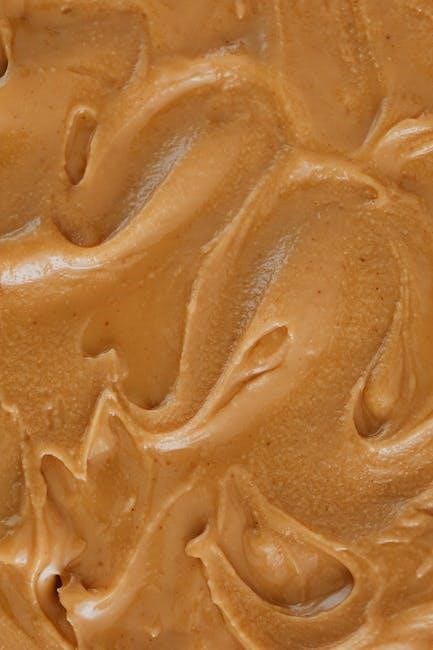
Foods to Avoid on the Primal Diet
The Primal Diet excludes processed foods, grains, and refined oils. Avoid sugary snacks, artificial additives, and highly processed meats. Focus on whole, natural foods instead.
7.1 Processed Foods
Processed foods are strictly avoided in the Primal Diet. This includes sugary snacks, packaged meals, and items with artificial additives. These foods are deemed unhealthy due to their unnatural composition and high levels of harmful ingredients. The diet emphasizes whole, unprocessed foods to promote better health and alignment with ancestral eating habits. Avoiding processed foods is central to achieving the diet’s benefits.
7.2 Grains and Refined Oils
Grains and refined oils are excluded from the Primal Diet. Grains, such as wheat, barley, and rice, are considered harmful due to their high carbohydrate content and potential for causing inflammation. Refined oils, like canola, sunflower, and soybean oil, are avoided because they are highly processed and contain unhealthy fats. This aligns with the diet’s focus on ancestral eating patterns and natural food sources. Avoiding these promotes better overall health.

Lifestyle Recommendations Beyond Diet
The Primal Diet emphasizes regular physical activity, adequate sleep, and stress management to support overall well-being. These practices complement the dietary focus on whole, natural foods.
8.1 Exercise and Physical Activity
The Primal Diet encourages regular exercise, emphasizing strength training and natural movement patterns. Physical activity is viewed as essential for overall health, aligning with ancestral lifestyles. It promotes consistency and variety in workouts to enhance mobility and energy levels, complementing the dietary focus on whole foods for a holistic approach to well-being.
8.2 Sleep and Stress Management
The Primal Diet emphasizes the importance of sleep and stress management for overall well-being. It encourages practices like meditation, deep breathing, and relaxation techniques to reduce stress. Adequate sleep is crucial for recovery, hormonal balance, and metabolic health. Managing stress effectively complements the dietary focus, promoting a balanced and healthy lifestyle aligned with ancestral living principles.
The Primal Diet offers a holistic approach to nutrition and lifestyle, focusing on natural, unprocessed foods and healthy habits like regular exercise and stress management. By eliminating harmful modern foods and emphasizing whole ingredients, it provides a sustainable path to weight loss, improved health, and enhanced well-being. This ancestral-inspired diet is a flexible and effective choice for those seeking long-term vitality and balance.
